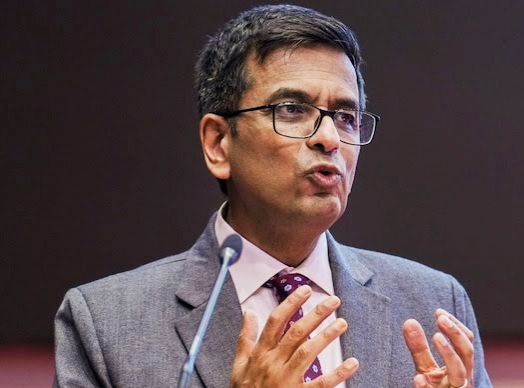Aastha Pareek
The principle of free speech is a cornerstone of constitutional democracies, symbolizing liberty and individual autonomy. However, former Chief Justice of India DY Chandrachud on December 6 (Friday) highlighted its inherent complexities in the context of unequal societies. Speaking at the Constitution Day lecture at the Kerala High Court on the theme “Fraternity under the Constitution – Our Quest for an Inclusive Society,” he shed light on the unintended consequences of unchecked free speech.
Chandrachud noted that while free speech is a constitutional aspiration and guarantee, its exercise in an unequal society often favors those with greater access to wealth, influence, and platforms. This disproportionate power allows the privileged to dominate public discourse, drowning out the voices of marginalized groups. “In a society with inequality, those with power will use their liberty to promote activities which are detrimental to those with less power. If speech is completely free, those with more resources and power will drown all other voices with their narrative,” he remarked. This observation by him reveals a paradox i.e., a right designed to empower individuals equally can, without safeguards, exacerbate systemic inequities.
He further warned that unchecked liberty can foster hateful and divisive narratives, which threaten societal harmony and disrupt the principle of equality enshrined in the Constitution. Chandrachud explained, “Liberty, therefore, will destroy equality,” emphasizing that unregulated freedom of speech often enables the powerful to perpetuate cycles of exclusion and inequality, sidelining the voices of vulnerable communities.
Equally, he argued, a simplistic approach to equality that disregards inherent social and economic disparities which only deepens inequality. Treating all individuals as equals, without accounting for differences in resources, opportunities, and social standing, grants undue advantages to those already in positions of privilege. Such an approach ignores the structural inequities that pervade society and undermines the constitutional vision of fraternity i.e., an inclusive society where disparities are actively addressed, and mutual respect is fostered.
Chandrachud’s reflection underscores the necessity of balancing free speech with equality to achieve true inclusivity. While free speech remains a fundamental right, it must operate within a framework that safeguards against the marginalization of vulnerable voices. Regulatory mechanisms, coupled with a commitment to amplify underrepresented perspectives, are essential to ensure that the right to free speech serves its intended purpose of fostering justice and social harmony.
The former CJI’s insights offer a profound reminder that constitutional guarantees must be contextualized within the realities of societal inequality. Free speech, when tempered with responsibility and inclusivity, can function as a powerful tool for empowerment, ensuring that all individuals, regardless of their socio-economic standing have an equal voice in shaping public discourse.

